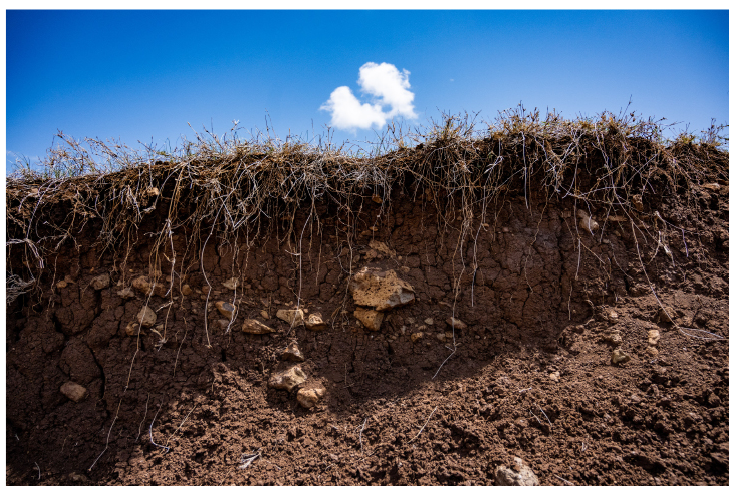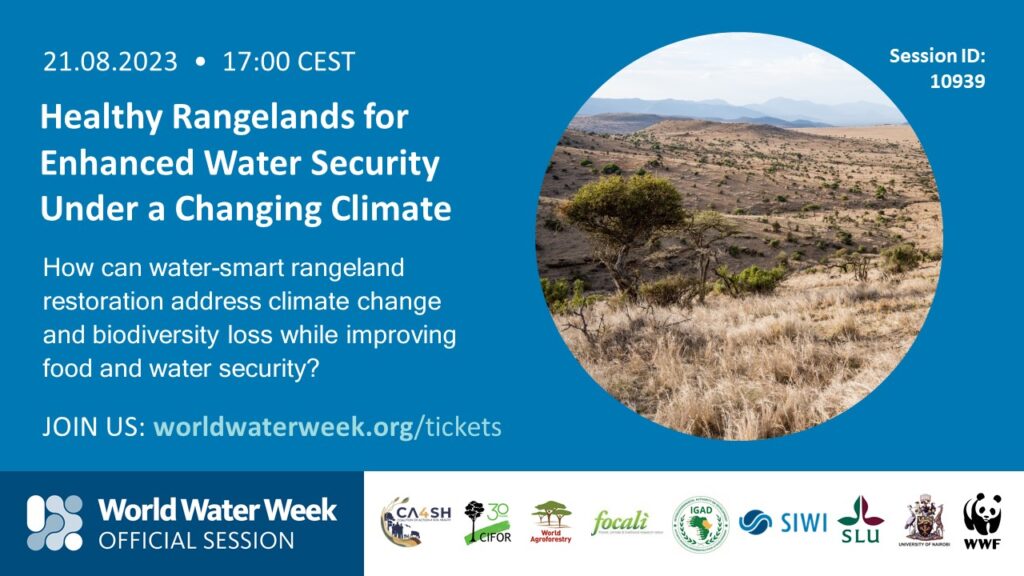Rangelands cover about half of the Earth’s land surface, store between 10 and 30% of terrestrial carbon, and support over 2 billion people, yet they are under-recognized and under-valued and have been largely ignored in sustainable development agendas and climate negotiations.
Typically, we have our heads in the trees when it comes to thinking about carbon sequestration, as we can see their carbon-storing biomass right in front of our eyes. In a 2022 study of over 6000 peer-reviewed and gray literature, 78% focused on forests while only 6% focused on grasslands and 3% on drylands.
But if we look beneath our feet in rangelands, we can see that they store 70% of their carbon below ground and support 80% of agriculturally productive land, globally, making them a critical focal point for addressing the global challenges of biodiversity loss, land degradation, climate change, water and food insecurity. Restoring degraded rangelands is urgently needed to address these interlinked crises and enhance human well-being.
On 21 August 2023, CA4SH joined CIFOR-ICRAF, Focali, IGAD, SIWI, SLU, University of Nairobi, and WWF at the 2023 World Water Week organised by Stockholm International Water Institute (SIWI) in a virtual session to discuss water-smart rangeland restoration.
The theme of this year’s World Water Week was Seeds of Change: Innovative Solutions for a Water-Wise World, facilitating conversations about how we manage water through the nexus of innovation, governance, and science. Moderator Malin Lundberg Ingemarsson (SIWI) opened the joint session by inviting participants to challenge the status quo of under-valuing rangelands in targeted investments for innovation.
Keynote speaker Leigh Ann Winowiecki (CA4SH co-Lead and CIFOR-ICRAF Soil and Land Health Global Research Lead) issued a call to action in advance of the upcoming 2026 Year of Rangelands, stressing that “now is our opportunity to convince the community to come together on rangeland health.” To do this, she underscored the importance of investing in rangeland restoration and rangeland health monitoring, scaling innovations, filling research gaps, and providing scientific evidence to demonstrate the effectiveness of restoration efforts over time. She also highlighted the key role of community engagement and the importance of encouraging farmer and pastoral-led innovations.

